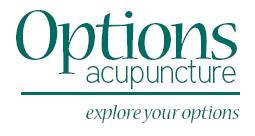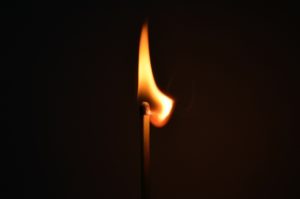
Alchemists attempt to purify and perfect, historically to transmute base metals into gold, or allegorically, to purify the basic elements of our consciousness into the gold of pure spirit through the process of inner transformation.
True alchemy appreciates that the purity of the process is what determines the purity of the result. Making gold requires precision like baking. It is not simply a creative experiment (like some of us might call our cooking). Recipes, order, structure, measurements, and procedure all take precedence over carefree approaches. Alchemists must honor the details of the ritual, the science of the process.
Alchemists, therefore, embody the metal element in Chinese Medicine. Metal is associated with refinement for the sake of purity. This relates to the season of Autumn in that it is a time of drawing inward to the purity of the core and letting go of the excess. In Autumn, trees draw their sap inward towards the roots, while simultaneously sending impurities upwards towards the leaves that they will shed. It’s also harvest time, when we take the edible essence provided by the earth and discard the husks and stalks that are no longer needed. This is a time to be careful in separating out what is essential from what can be relinquished. This careful precision is the key to the alchemist’s process of extracting order from chaos.
Are you an Alchemist?
- Do you keep your living space tidy and organized?
- Are you detail oriented?
- Have you ever been called a ‘perfectionist’?
- Do you follow recipes when you cook?
- Is purity a value for you in any area of your life?
- Do you pride yourself on your integrity?
Most of us have at least some of the metal element energies within us, in some areas of our lives. They may even be in excess when it comes to certain aspects of our personality. For instance, if we are overly rigid in regards to our own expectations of our education or career, this can lead to stress and lack of joy in the process. Or on the flip side, if we completely drop expectations and make half-hearted efforts in our work or projects, we lack that sense of refinement attributed to the metal element, and allow for sloppy results.
Exaggerated expressions of the metal element are seen in dogmatic, authoritarian strict personalities that prefer control and are bound to routine. Associated health concerns include issues of rigidity and dryness such as stiff joints and muscles, dry skin, poor circulation, restricted breathing, constipation and a reserved, flat affect unable to confer much emotion. While a collapsed version of the metal energy leads to a decay of personal values and a reliance upon external constraints (such as in a fearful adherence to a strict religion or structure) or someone who has given up on structure completely and tends towards disarray and chaos. In the extreme collapse of metal, someone may simply become numb. Health issues due to deficient metal energy manifest as weaknesses like shortness of breath, anemia, loss of body hair, easy perspiration, and stress incontinence.
Autumn, the season of metal, is the perfect time to tap into our inner alchemist, organize our space, bring order where it is needed, clean up the chaos, and use ritual to empower our intentions. As always, we must be aware of the equilibrium of energies and compensate for rationality and self-control with passion and spontaneity. A little dose of “go with the flow” helps to balance things out. A true alchemist will recognize that with any ritual, following a set structure is important, as long as you leave room for the magic.
Let us help you tap into your magic and nurture your inner alchemist in time for the fall season! Call today to schedule your next acupuncture session!





